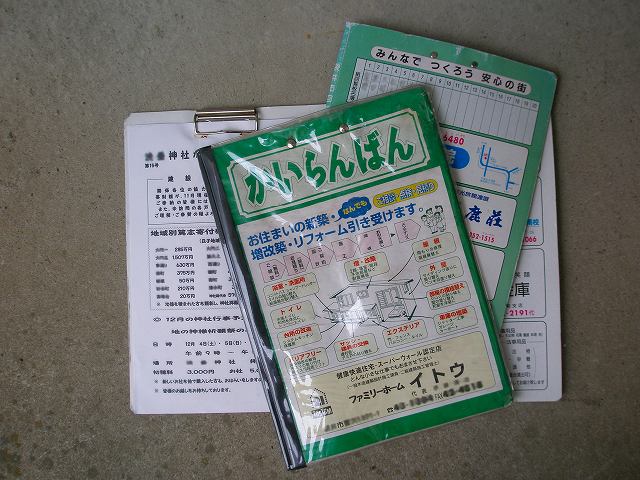I write often about how harmonious Japan appears to foreigners living here. Seen from our special position as outsiders (which is what the word gaijin really means, after all), most Japanese seem to possess joshiki, a kind of “national common sense” which keeps them generally in sync with society at large; in cases where an individual moves away from accepted norms, the phenomenon of hito no me (“the eyes of others”) will usually bring him around, or at least get him to keep his penchant for [fill in any slightly anti-social but fun activity here] hidden from general view. This tendency to get along with each other doesn’t just happen automatically: there are concrete mechanisms in place that help make Japanese society the happy, feel-good place it is. When I walked to school back in the U.S. I walked alone, and my primary concern was avoiding getting beaten up by a bully along the way, but in Japan, kids walk to school together in a group called a han, with the oldest child acting as hancho (remember, “head honcho”) which forces kids to interact socially in positive ways. Our larger neighborhood is divided into sections called kumi, which plan various community events, establish schedules of mothers who will stand along the route kids walk to school to make sure they’re safe, and publish information on designated evacuation areas in the event of a disaster. They also distribute the kairanban (kai-rahn-bahn), a circular with information on various goings-on in the community, another subtle way of building social ties since it has to be manually passed from house to house. When I married my wife in 1994, I puzzled at the small speaker wired to one wall in their living room, out of which a calm voice would occasionally sound, announcing things like an ikebana class being held in the Community Center, or the all-important-in-fire-prone-Japan reminders to make sure your kerosene heaters are turned off at 10 pm. The system eventually fell out of use and the speaker was removed when we “reformed” our house (as they say in Japan, meaning remodel), but while it as hooked up I was amazed at the benevolent 1984-esque-ness of it all.
A kairanban is a clipboard with a list of names, and when you’ve seen the news on the clipboard you sign your name and take it to the next family. Do they have anything like this in the U.S.? Hmm, maybe the Amish do, come to think of it.















